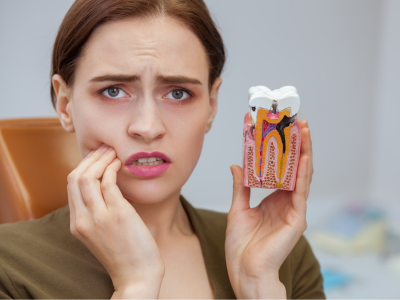Sugar is a topic that often sparks heated debate in the world of health and nutrition. Some claim that sugar is bad for our health, responsible for a myriad of problems such as obesity, diabetes and cardiovascular disease. Others, however, believe that sugar can be part of a balanced diet and that blaming it would be an oversimplification of a complex issue.
So, what does the latest research in medical and nutritional science say about the effects of sugar on overall health? Let’s look at the facts to find out the truth behind the sugar saga.
Impact of sugar on our body
The different forms of sugar
Sugar see Sugar from Wikipedia, is an essential source of energy for the human body, but there are different forms of sugar, and each has a different impact on our health and metabolism. Here’s a look at the main forms of sugar and how they help the body:
* Glucose:
Glucose is the simplest form of sugar and the main source of energy for the body. It is produced during the digestion of carbohydrates and is quickly absorbed into the bloodstream for use as fuel by the body’s cells. Glucose is essential for fueling the brain, muscles and other tissues, thereby maintaining normal bodily functions.
Macronutrients : Carbohydrates
by Chaire Anca
* Fructose:
Fructose is a type of sugar found naturally in fruits, honey and some vegetables. It is also found in high fructose corn syrup, a sweetener commonly used in processed foods. Fructose is metabolized in the liver and can be converted to glucose or stored as fat if consumed in excess. Although fructose is a natural source of sugar, excessive consumption can contribute to health problems such as obesity and metabolic diseases.
* Sucrose:
Sucrose, also known as table sugar, is a disaccharide composed of glucose and fructose. It is extracted from sugar cane or sugar beets and is commonly used as a sweetener in foods and drinks. When consumed, sucrose is broken down in the body into glucose and fructose, providing energy for daily activities.

* Lactose:
Lactose is a sugar found in milk and dairy products. It is made up of glucose and galactose and is digested by an enzyme called lactase in the small intestine. Some people may have lactose intolerance, meaning they lack lactase and cannot digest lactose effectively. This can lead to gastrointestinal symptoms such as bloating, gas and diarrhea after consuming dairy products.
* Maltose:
Maltose is a disaccharide composed of two glucose molecules. It is found naturally in certain foods such as grains, seeds and tubers, as well as in brewed products such as beer. Maltose is broken down into glucose by the enzyme maltase, making it a quick source of energy.
Sugar goes by many different names, as you can see here The 56 Most Common Names for Sugar by Healthline
Sugar is the cause of 350,000 deaths…
by the US Navy
Natural sugars should be favored
Sugars are a type of simple carbohydrate. And, carbohydrates play a vital role in providing energy to the body as they are broken down into glucose, which serves as fuel for the brain and muscles. Carbohydrates also play a role in maintaining blood sugar levels, supporting digestive health, and nutrient absorption.
So, it’s important to differentiate between the different types of sugar. Thus, there are two main categories of sugar:
– natural sugars found in fruits, vegetables and dairy products,
– and added sugars found in processed foods and beverages.
see Natural versus refined sugar: What’s the difference? by MD Anderson Center
If Fructose Is Bad, What About Fruit?
by Nutritionfacts.org
Natural sugars such fructose, come with essential nutrients like fiber, vitamins, and minerals, which can benefit our health when consumed in moderation.
Added sugars, on the other hand, provide empty calories and can contribute to weight gain and other health issues when consumed in excess. Refined sugars, such as sucrose (table sugar), can be harmful…
This is why it is important to limit the consumption of foods and drinks high in added sugars, such as soft drinks, sweets and processed sugary products. See Is sugar really bad for you? by the BBC.
The recommended daily intake of sugar
The body’s sugar needs vary from person to person depending on factors such as age, gender, level of physical activity and individual metabolism. However, there are general recommendations for the amount of sugar we should consume daily, as well as limits that should not be exceeded to avoid health risks.
How Much Added Sugar Is Too Much?
According to the American Heart Association, see Added Sugars – the daily limit of sugars for men is 150 calories per day (equivalent about 9 teaspoons or 36 grams) and for women, it is 100 calories per day (equivalent to 6 teaspoons or 25 grams). This recommendation is based on a daily caloric intake of 2,000 calories.
For children, the American Heart Association recommends limiting added sugars to no more than 25 grams per day for children ages 2-18. This is roughly equivalent to 6 teaspoons of sugar.
According to the WHO (World Health Organization), 10% of daily calories should be consumed in the form of sugar. This amounts also to approximately 25 grams of sugar per day maximum, or 6 teaspoons. This amount includes natural and added sugars.
Moreover, they recommend to reduce the intake of free sugars to below 5% of total energy.see WHO calls on countries to reduce sugars intake among adults and children
Risks associated with excessive sugar consumption
How to Prevent Blood Sugar and Triglyceride Spikes After Meals
Source : Nutritionfacts.org
Consuming excessive amounts of sugar can have numerous negative health effects. Some potential health risks associated with consuming too much sugar include:
-
Obesity :
Foods high in added sugars are often high in calories but low in essential nutrients. Excessive consumption of these foods can lead to excessive calorie intake, which promotes weight gain and obesity.
-
Type 2 diabetes :
When we consume large amounts of sugary foods and drinks, our bodies experience rapid spikes in blood sugar, leading to an insulin response and subsequent storage of excess sugar as fat. Over time, this can contribute to weight gain, insulin resistance and the development of diabetes.
Insulin is a hormone produced by the pancreas that regulates blood sugar by allowing glucose to enter the cells to be used as an energy source. Insulin resistance makes cells less sensitive to this hormone, leading to a buildup of glucose in the blood.
10 natural foods and spices to lower blood sugar fast.
source: SugarMD
-
Cardiovascular illnesses :
Excessive consumption of added sugars has been linked to an increased risk of cardiovascular disease, including high blood pressure, high cholesterol levels, heart disease and stroke. Diets high in added sugars can increase triglyceride levels in the blood, contributing to the development of these conditions.
On the contrary, a diet low in added sugars like the Keto diet can improve your overall health, see Benefits of the Keto Diet.
-
Cavities
Bacteria in the mouth feed on sugar, producing acids that attack tooth enamel and cause cavities. Excessive consumption of added sugars, especially in the form of sugary drinks and candy, increases the risk of tooth decay and oral health problems.

-
Increased inflammation:
Diets high in sugar have been linked to increased inflammation in the body, which is a risk factor for various chronic diseases, including heart disease, cancer, and arthritis.
-
Candidiasis:
Another lesser-known effect of sugar is its potential impact on gut health. Excessive sugar consumption can feed harmful bacteria and yeast in the gut, leading to an overgrowth of candida albicans, a species of yeast that can cause candidiasis or candida overgrowth.
Symptoms of candida overgrowth can range from digestive issues like bloating and gas to more severe conditions like chronic fatigue syndrome and autoimmune diseases.
Sugar Yeast Experiment (how sugar affects your gut)
by DR Gundry
In conclusion, it is important to be mindful of sugar intake and limit consumption of foods and beverages high in added sugars to reduce the risk of various health problems. The recommended daily intake of sugar for adult should be adhered to in order to promote overall health and well-being.
It may also be appropriate to start a keto diet to improve your health, see the meal plan.
How to reduce your sugar intake
Reducing your sugar intake can be beneficial for your health, but it can also be a challenge, especially if you’re used to consuming sugary foods and drinks regularly. see 13 Simple Ways to Stop Eating Lots of Sugar. Here are some practical tips to help you reduce your sugar intake:
1. Read the labels:
Added sugars often lurk in many processed foods, even those that don’t seem sweet. Learn to read food labels and look for different names of sugar, such as high fructose corn syrup, dextrose, sucrose, cane sugar, and maltose, and opt for products with little or no added sugars.
2. Limit sugary drinks:
Sodas, energy drinks, fruit juices and other sugary drinks are among the main sources of added sugars in the diet. Opt for water, unsweetened herbal teas, black coffee or unsweetened tea to hydrate yourself.
3. Avoid Processed Foods:
Processed foods, such as cookies, cakes, candy bars, sugary cereals, sauces, and pre-packaged condiments, often contain significant amounts of added sugars. Choose whole, unprocessed foods whenever possible.
Kick Your Sugar Addiction In 4 Steps
4. Prepare your meals at home:
Cooking at hom
e gives you complete control over the ingredients you use. Favor homemade recipes with natural ingredients and avoid adding sugar where it is not necessary.
5. Use natural sweeteners in moderation:
If you need to sweeten your food or drinks, opt for natural sweeteners like honey, maple syrup and stevia or fresh fruit. However, use them in moderation as they also contain natural sugars.
6. Pay Attention to Sweet Snacks and Desserts:
Replace high-sugar snacks with healthier options.
Choose whole foods like fresh fruits, raw vegetables, nuts or seeds.
These nutrient-dense options provide natural sources of sugar as well as essential nutrients for optimal health.
How to Bring High Blood Sugar DOWN FAST in JUST 2 Weeks NATURALLY?
by Dr Ergin
7. Be patient and gradual:
Reducing your sugar intake can take time and often requires gradual adjustments. Set realistic goals and make changes gradually to make it more sustainable. See 13 Simple Ways to Stop Eating Lots of Sugar by Healthline.com.
Berberine helps reduce blood sugar levels
Berberine is a natural compound extracted from various plants, including berberis, hydrastis canadensis (goldseals), and coptis chinensis (chinese coptis). It has been used for centuries in traditional Chinese medicine to treat a variety of health conditions, including metabolic disorders like type 2 diabetes.
Several scientific studies have examined the effects of berberine on blood sugar and blood sugar control, and the results are promising.
Here are some of the potential benefits of berberine, based on scientific research:
-
Improved glycemic control:
Studies have shown that berberine may help lower blood sugar by increasing insulin sensitivity, decreasing glucose production in the liver, and improving glucose metabolism in cells.

-
Cholesterol reduction:
This also appears to have positive effects on blood lipid levels, including reducing total cholesterol, LDL (“bad”) cholesterol, and triglycerides
-
Anti-inflammatory and antioxidant properties:
It has anti-inflammatory and antioxidant properties that may help reduce inflammation and protect against oxidative damage in the body.
-
Effects on digestive health:
Berberine may have beneficial effects on digestive health by modulating the composition of intestinal flora and improving intestinal function.
The Insane Benefits of Berberine
by Dr Gundry
It is important to note that although berberine may have beneficial effects on blood sugar control, it should not be used as a substitute for conventional medical treatments.
People suffering from certain medical conditions, particularly diabetes, should consult their doctor for personalized advice before starting to take berberine supplements.
Additionally, the quality of berberine supplements can vary, so it is important to choose quality products and follow proper dosage recommendations.
In conclusion, while sugar can have negative effects on overall health when consumed in excess, it can also be consumed in moderation as part of a balanced diet.
By being mindful of the types and amounts of sugar we consume and focusing on whole, nutrient-dense foods, we can find a healthy balance that supports our well-being and vitality.
This is not about demonizing sugar, but rather about understanding its role in our bodies and making informed choices for optimal health results.
** The information provided on our website is for general informational purposes only. The content provided should not be considered professional advice or a substitute for seeking professional advice.


Thank you for sharing this insightful and informative blog post. I found the information you presented to be valuable and the explanations to be easy to understand.
Great job on your blog post! It was evident that you have a deep understanding of the topic, and I appreciated the practical tips you provided. To delve deeper…
Your blog post was a valuable resource that provided a fresh perspective on the subject. I appreciated the way you highlighted different viewpoints and…